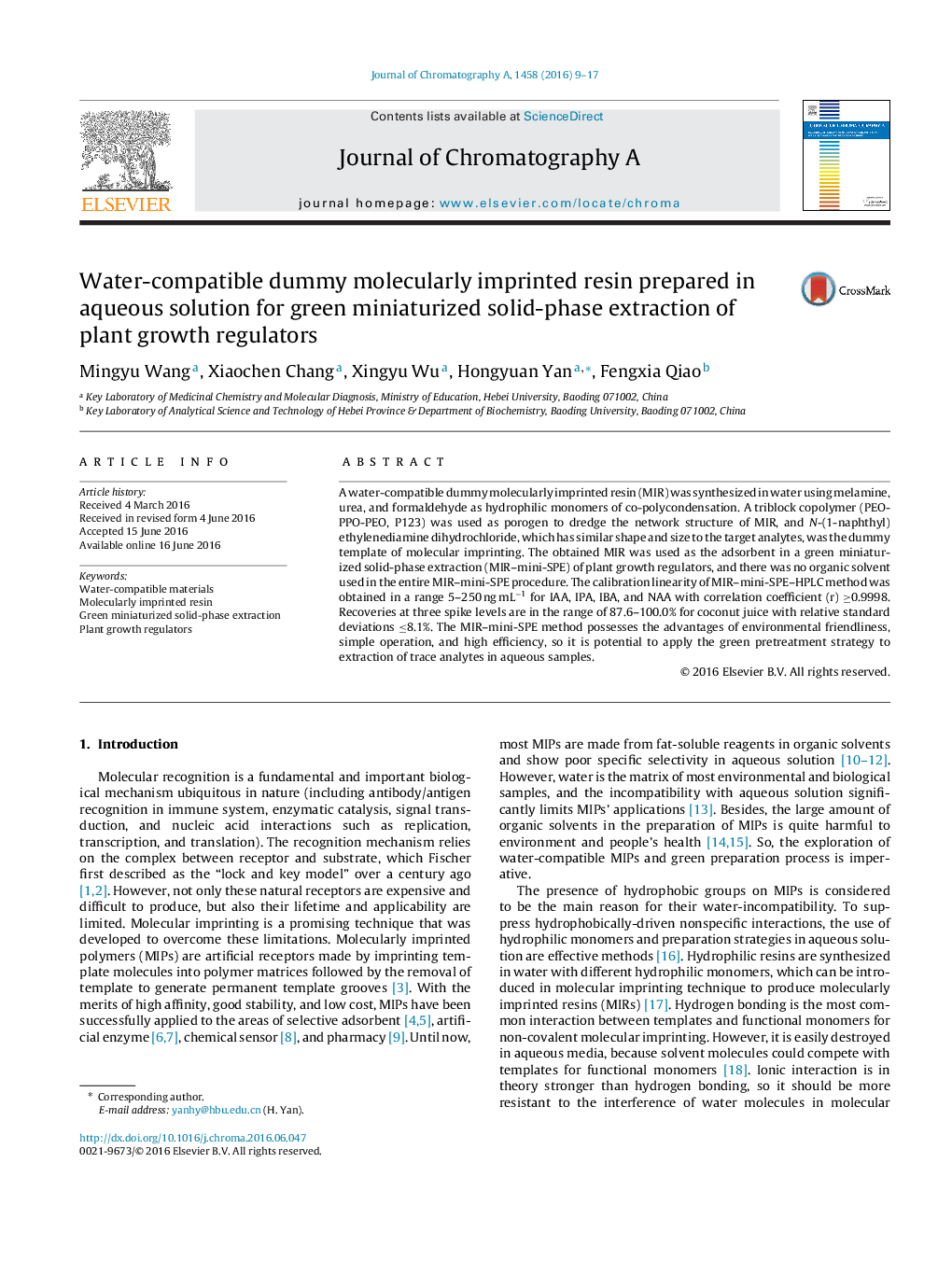| Article ID | Journal | Published Year | Pages | File Type |
|---|---|---|---|---|
| 1198427 | Journal of Chromatography A | 2016 | 9 Pages |
⬢Water-compatible dummy molecularly imprinted resin (MIR) is synthesized in aqueous matrix.⬢MIR shows excellent molecular recognition in aqueous matrices.⬢No organic solvent used in the entire MIR-mini-SPE procedure.⬢Green miniaturized solid-phase extraction is developed applied to plant growth regulators.
A water-compatible dummy molecularly imprinted resin (MIR) was synthesized in water using melamine, urea, and formaldehyde as hydrophilic monomers of co-polycondensation. A triblock copolymer (PEO-PPO-PEO, P123) was used as porogen to dredge the network structure of MIR, and N-(1-naphthyl) ethylenediamine dihydrochloride, which has similar shape and size to the target analytes, was the dummy template of molecular imprinting. The obtained MIR was used as the adsorbent in a green miniaturized solid-phase extraction (MIR⬜mini-SPE) of plant growth regulators, and there was no organic solvent used in the entire MIR⬜mini-SPE procedure. The calibration linearity of MIR⬜mini-SPE⬜HPLC method was obtained in a range 5⬜250 ng mL↙1 for IAA, IPA, IBA, and NAA with correlation coefficient (r) Ⱕ0.9998. Recoveries at three spike levels are in the range of 87.6⬜100.0% for coconut juice with relative standard deviations Ⱔ8.1%. The MIR⬜mini-SPE method possesses the advantages of environmental friendliness, simple operation, and high efficiency, so it is potential to apply the green pretreatment strategy to extraction of trace analytes in aqueous samples.
